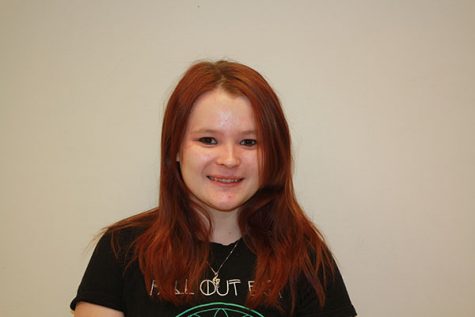Opinion: Love yourself for who you are
May 26, 2017
Newsstands are stuffed with Photoshop images of “flawless” models, setting the standard for what society defines as the “perfect” body or the “perfect” hair. But with the growing number of today’s youth who force themselves to fit into this mold of perfection, these seemingly innocent images may end up doing more harm than good.
Many magazines showcase these images to attract a target market of primarily young females who may be tempted to purchase the issue to learn how they should do their hair and makeup to keep up with current trends and manufacture themselves to be as flawless as the models on the cover. They find themselves subjected to these false perceptions everywhere from magazines to social media to television shows.
Even children’s toys display this perfect idealism, with many dolls designed to suit one unrealistic body type. A study on Barbie dolls has shown that if the doll were to represent a real person, it would not have enough body mass to sustain all bodily organs necessary for normal function. Still, many young girls grow up to believe this is the body type they must have to be considered “perfect” in the eyes of society.
The word “perfect” is technically defined as “having all the required or desirable elements, qualities, or characteristics; as good as possible to be.” This in itself is vague and open to interpretation, as each person will have unique standards of what they consider to be “desirable.”
The same thing stands for the definition of the word “beauty.” Beauty is defined as “a combination of qualities that pleases the aesthetic senses, especially sight.” Once more, this concept may differ from person to person, as everyone is unique in regards to their preferences and opinions on what they do and do not find aesthetically pleasing.
When asked for their favorite color or their favorite food, people will present a different answer. So why are perfection and beauty held to a strict standard maintained by society? Why should humanity as a whole be defined by a cookie-cutter mold when each individual can provide something unique and special in regards to their personal definitions of perfection and beauty?
People come in many different colors, shapes, and sizes, and no one deserves to be judged as “imperfect” or not beautiful simply because they have qualities that differ from what magazines and social media portray as the “norm” or current trend.
Individuality itself sparks beauty and creativity; without it, the world would lose its spark of mystery, and more importantly, diversity. People need to realize that they don’t need to feel ashamed of their identity just because they don’t perfectly match up to that societal mold.
It’s 2017. The world is changing, and it’s okay to love yourself for who you are.


